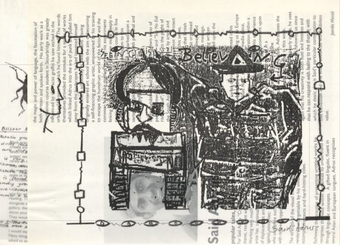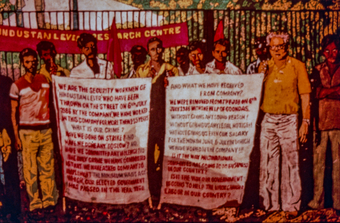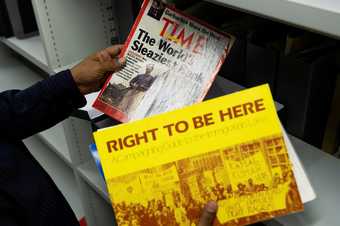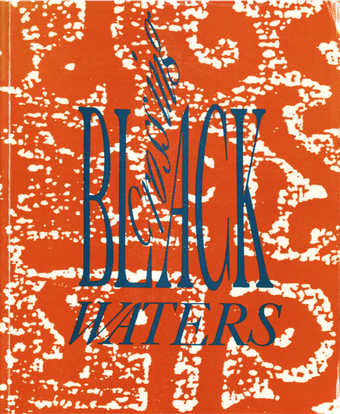Shaheen Merali was born in Tanzania and lives in Britain. He is a curator, critic and artist of Asian heritage. Merali began his artistic practice in the 1980s, committing to social, political and personal narratives. As his practice evolved, he focused on his work as a curator, and has now moved to research and writing. Merali is Visiting Professor at the University of Applied Arts, Vienna, and a PhD candidate at Coventry University, based at the Centre for Arts, Memory and Communities (CAMC), Research Institute for Creative Cultures. His research is concerned with contemporary political Black arts practices that emerged in Asian and African diasporic cultures in the early 1980s and their relationship to curatorial and self-organisational formations in British arts. Merali is a member of the steering group The Role of Visual Arts Organisations in the British Black Arts Movement in the Midlands that received the AHRC Networking Grant (2021–23)
Merali curated the inaugural Uganda Pavilion, Radiance – They Dream in Time, for the 59th Venice Biennale in 2022. The pavilion was presented the special mention award at the Golden Lion Ceremony. Merali co-curated Berlin Heist – or the enduring fascination of walled cities for the 2014 Mediations Biennale in Poznan, Poland. He also co-curated the 2006 Gwangju Biennale in Korea. Merali was the Head of the Department of Exhibition, Film and New Media at the Haus der Kulturen der Welt, Berlin from 2003 to 2008, where he curated several exhibitions accompanied by publications, including The Black Atlantic: Travelling Cultures, Counter-Histories, Networked Identities (2004), Dreams and Trauma: Moving Images and the Promised Lands (2005) and Re-Imagining Asia: A Thousand Years of Separation (2008). Merali was a key lecturer at Central Saint Martins, University of the Arts London from 1995 to 2003 and a visiting lecturer and researcher at the University of Westminster from 1997 to 2003.
In 1988, Merali co-founded the Panchayat Arts Education Resource Unit in Old Spitalfields Market. The Unit engaged in an archiving practice, collecting ephemera, documents and publications pertaining to British political Black artists or artists of Asian and African descent. Their collection provided research material that illustrated the link between modern and contemporary art and activism in the UK and internationally. Since 2015 the Panchayat Collection has been donated to Tate Library and designated a special collection. It is housed at Tate Britain, London. Merali was the curatorial consultant on the Provisional Semantics project that took the Panchayat Collection at Tate as a case study to address ‘the challenges of representing multiple perspectives within an evolving digitised national collection’. His curatorial contribution was titled Panchayat-Horizon.




